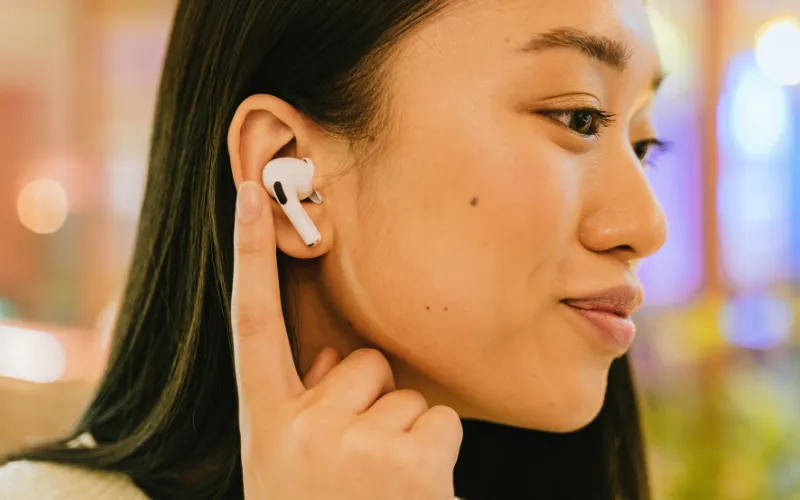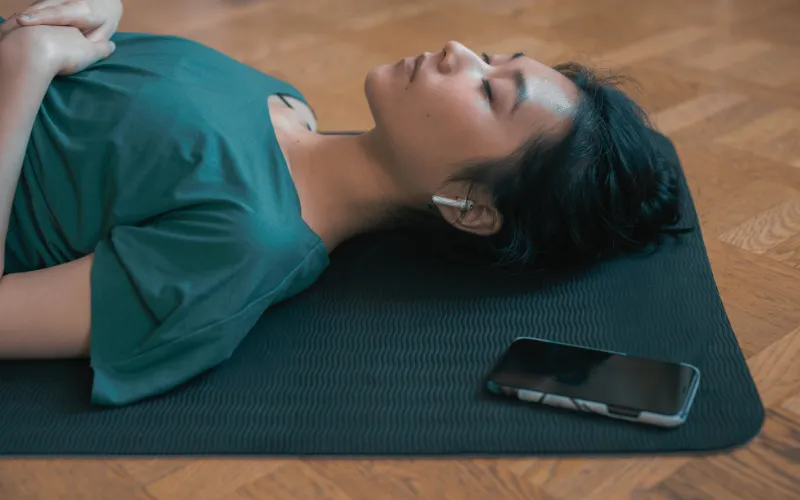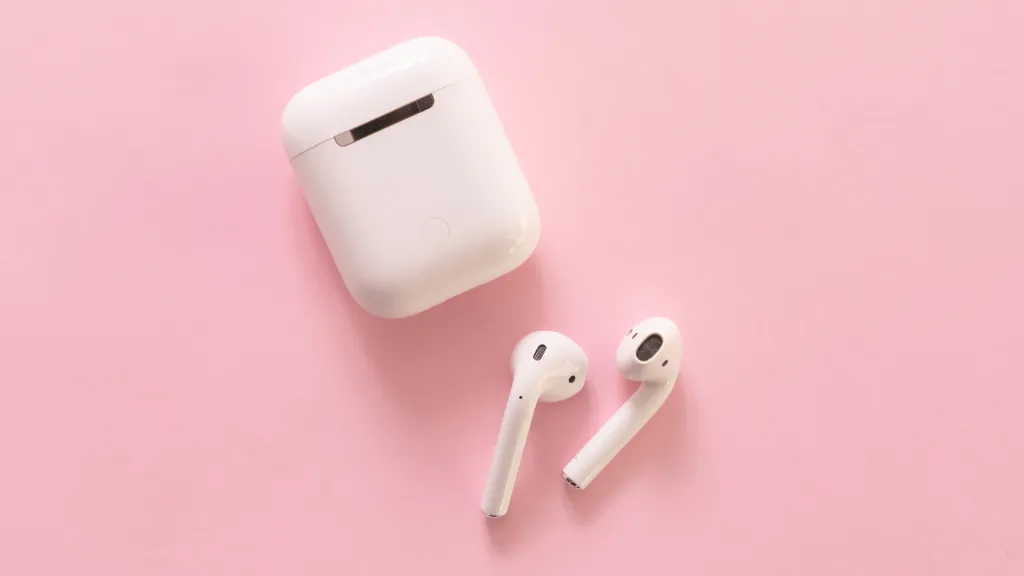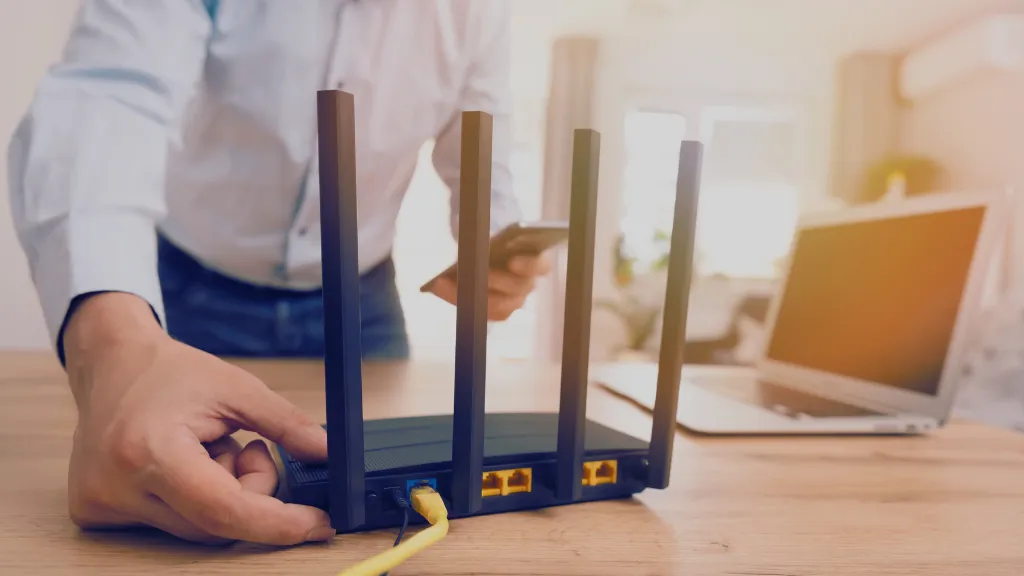Many people rely on music or podcasts to unwind in our fast-paced world. This often leads to a common question: is it safe to sleep with AirPods in?
While convenient, using AirPods or other earbuds during sleep may raise concerns about safety and health. This article delves into the pros and cons of sleeping with AirPods, helping you make an informed decision.
Risks Associated with Sleeping While Wearing AirPods or Headphones
1. Comfort and Convenience
The physical aspect of wearing AirPods while sleeping cannot be overlooked. For side sleepers, in particular, this can be a challenge.
The pressure exerted by the earbuds against the ear canal may lead to discomfort or even pain. This is especially true for those who wear them for several hours, as the prolonged pressure can irritate the delicate skin in and around the ear.

2. Impact on Sleep Quality
One of the most direct impacts is the potential for sleep interruptions. If the AirPods become dislodged during the night, this can lead to frequent awakenings as you adjust or search for the fallen earbud.
Such disturbances, even if minor, can disrupt the natural progression through the various stages of sleep, particularly the deep REM (Rapid Eye Movement) stage, which is crucial for a restful night.
The volume at which the audio is played is also a critical factor. Higher volumes can not only be damaging to ear health but can also lead to a heightened state of alertness, contrary to the relaxation needed for sleep.
Furthermore, prolonged exposure to any sound, even at a low volume, throughout the night could lead to increased fatigue upon waking, as the ears and brain do not receive the usual quiet rest period.
3. Potential Health Risks
One of the more immediate concerns is the risk of earwax buildup and blockage. Earbuds can push earwax deeper into the ear canal, leading to impaction.
This affects hearing and can cause earaches and tinnitus (ringing in the ears). In severe cases, removing the impacted wax might require medical intervention.
The ear is a delicate environment, and introducing foreign objects like earbuds can disrupt its natural balance. Wearing AirPods for prolonged periods, especially during sleep, can trap moisture in the ear canal.
This moist environment is conducive to bacterial growth, potentially leading to outer ear infections (otitis externa), commonly known as swimmer’s ear. Symptoms include itching, redness, and pain, which can become severe if left untreated.
4. Hearing Risks
Noise-Induced Hearing Loss (NIHL) is a real concern when using earbuds like AirPods. NIHL can occur from prolonged exposure to sounds at or above 85 decibels (dB).
While normal conversation levels are about 60 dB, many people listen to music or podcasts at higher volumes, sometimes exceeding safe levels. This risk is heightened during sleep, as users might unknowingly increase the volume to drown out ambient noise, exposing their ears to potentially harmful levels for several hours.
Consistent exposure to loud noise can damage the tiny hair cells in the inner ear. These cells are crucial for transmitting sound to the brain. Once damaged, these cells do not regenerate, leading to permanent hearing loss.
The design of earbuds like AirPods can also contribute to hearing risks. Unlike over-ear headphones, earbuds sit directly in the ear canal, closer to the eardrum.
This proximity means that the impact on the ear can be significant even at lower volumes. Additionally, the seal created by earbuds in the ear canal can amplify the sound pressure, potentially increasing the risk of hearing damage.
5. Battery Safety and Radiation
Lithium-ion batteries are known for their efficiency and longevity but are not without risks. One of the concerns is the potential for overheating.
While incidents of earbuds overheating are rare, they are not unheard of. Sleeping with AirPods could potentially increase the risk of overheating, especially if charged while in use. Overheating can lead to skin irritation, burns, or, in extreme cases, battery leakage.
Bluetooth technology, which enables the wireless functionality of AirPods, emits non-ionizing electromagnetic radiation. The level of radiation from Bluetooth devices is significantly lower than that from other sources like cell phones.
However, the long-term effects of constant, close-range exposure to this type of radiation are still a subject of ongoing research. While current studies suggest that the levels emitted by devices like AirPods are generally safe, there is a lack of long-term data, especially concerning overnight exposure.

Safer Alternatives to Sleeping with AirPods or Headphones
If you’re seeking alternatives to AirPods for sleeping, several safer and more comfortable options can still provide a soothing audio experience without the risks associated with earbuds.
Sleep-Specific Headphones
- Pillow Speakers and Sleep Masks: These devices integrate thin speakers into a comfortable headband or sleep mask, allowing you to listen to audio without the discomfort of earbuds. They are designed to be comfortable even for side sleepers.
- Bone Conduction Headphones: These innovative headphones rest on your temples and transmit sound through bone conduction, leaving your ear canals open. This reduces the risk of ear infections and wax buildup.
White Noise Machines and Apps
- Dedicated White Noise Machines: These machines produce a range of soothing sounds like rain, ocean waves, or white noise. They are an excellent tool for drowning out external noises without needing to wear anything in or on your ears.
- Smartphone Apps: Several apps are available that can play various relaxing sounds. You can place your smartphone at a distance and set a timer for the app to turn off automatically.
Room Speakers
- Low-Volume Ambient Music: Using a speaker to play ambient or calming music at a low volume is a great alternative. This method avoids direct contact with your ears and allows for a more natural and less intrusive sleep environment.
Mindfulness and Meditation Techniques
- Guided Meditations: Instead of relying on music or white noise, consider guided meditation sessions to promote sleep. These can be played through a speaker or sleep-specific headphones.
- Breathing Exercises: Incorporating breathing exercises into your bedtime routine can be a natural and effective way to relax and prepare your body for sleep without needing electronic devices.
Conclusion
Sleeping with AirPods is a personal choice, but it’s essential to be aware of the potential comfort, health, and safety concerns. Weighing these factors will help you decide whether to keep those AirPods or Headphones in at night or opt for a safer alternative.
Frequently Asked Questions
Can sleeping with AirPods cause ear infections?
Prolonged use can increase the risk of ear infections due to trapped moisture and wax buildup.
Is the radiation from AirPods harmful if used while sleeping?
The radiation levels are low, but long-term effects are still under study.
What are the best alternatives to AirPods for sleeping?
Consider using sleep-specific headphones or white noise machines.







